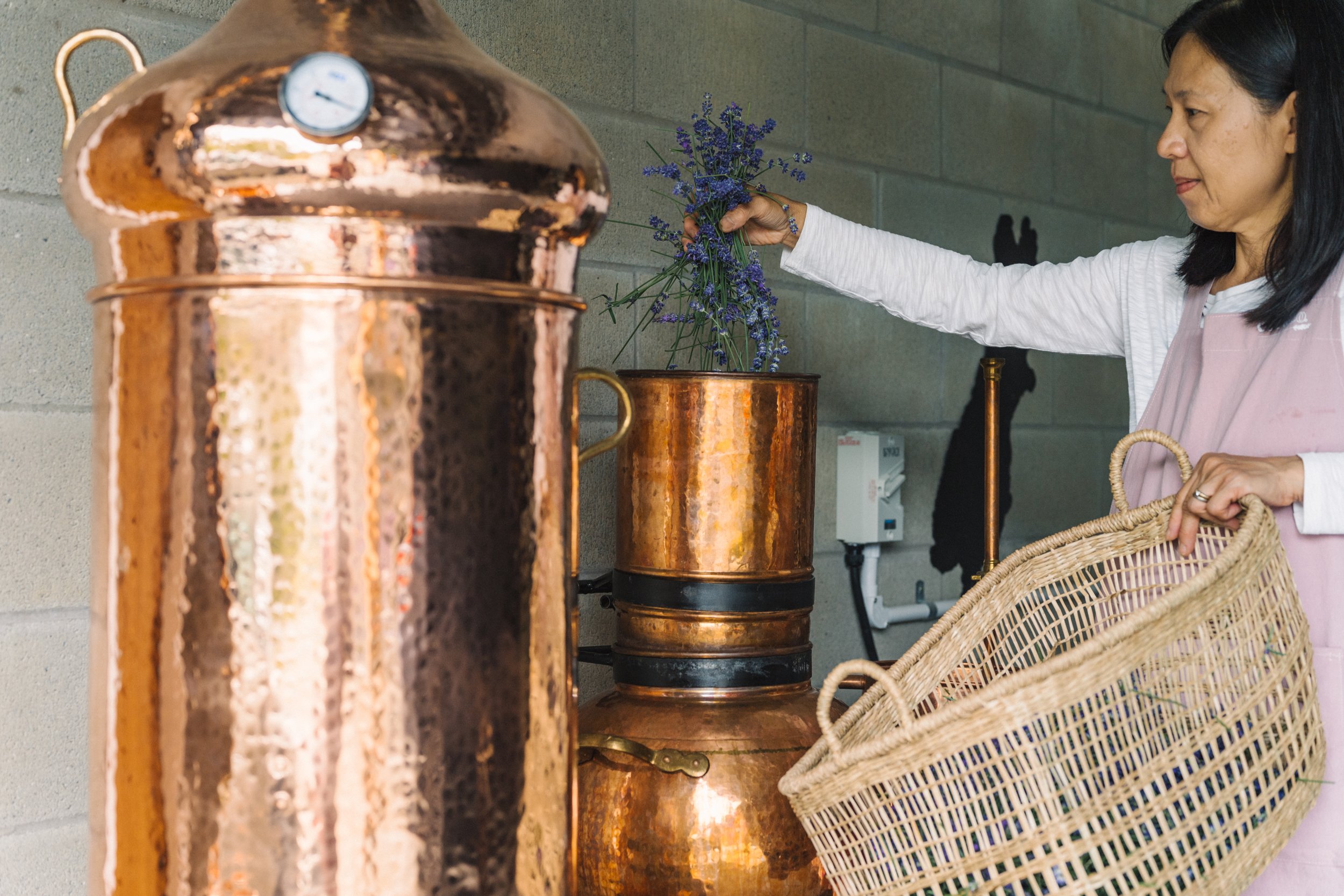Traditional Copper Alembic Distilling
Black Teal Bay distils its essential oils on-site using its two traditional copper Alembic stills, both of which were handcrafted in Portugal.
Alembic refers to traditional distillation, or a boiling system for extraction. Essentially raw ingredients, which are heated to the right temperature via water vapor, then release their essential oils that as they cool, are collected in a container.
The word alembic was derived from the ancient Greek “ambix” (for “cup”), and subsequently Arabic, “al-ambiq,” (for “that which refines”). Alembic distilling has a long history that has been potentially traced as far back as 4000 BC and the first Alembic distilling of essential oils appear to date back to 3500 BC based on a still found near Mosul (in modern day Iraq).
The Alembic still has four core parts: the “cucurbit,” or still pot containing the liquid to be distilled, which is heated by flame/gas; the “head” or “cap,” which fits over the mouth of the cucurbit to receive the vapours; and an attached downward-sloping “tube” leading to the “receiver” container.
The distillation process is driven by controlling the temperature with vapours able to be separated to extract different substances according to their evaporation point. Once the technique was understood, distillers have since been working on ways to improve the design and make a perfect distillate.
The alembic distillation process likely came to Europe via the Arabic world, beginning in Sicily in the 13th century. In 1526, Paracelsus used water baths to improve heat transfer. In 1771, the German chemist Christian Ehrenfried Weigel invented a cooling process for distillate leading out of the still using flowing water, later improved on by Justus Von Liebig and named the Liebig condenser, which was the forerunner to current day shell-and-tube condensers.
While newer materials have been introduced such as stainless-steel and aluminium (often for often larger scale distilling), copper remains the preferred material for quality artisanal essential oil producers such as Black Teal Bay due to a number of its unique properties.
Copper has twice the thermal conductivity of aluminium and nearly ten times that of stainless steel. It is energy efficient and has excellent heat transfer properties which is helpful for both heating and cooling of vapours evenly and quickly.
Copper is highly antibacterial making it the ideal material for use with water and high heat and it destroys a wide range of bacteria and viruses that may otherwise develop. Historically copper pipes were often used to purify drinking water.
When distilling in copper, the copper reacts on a molecular level with sulphurs and a copper still avoids smells from the sulphur that could contaminate the hydrosol ensuring the purest scent and aroma.
And a copper still feels natural and is a work of art in its own right. Copper is a very malleable metal allowing for a more breathable bubble shape. The copper stills are handmade by craftspeople (usually using rivets to join the components of the still together) and therefore every still is unique.
Here at Black Teal Bay, we are proud to not only organically grow our own lavender but to also distil our oils onsite ourselves carefully using traditional copper alembic stills to ensure we consistently produce premium quality essential oils.


